Genocide Prevention Day: Gaza continues to endure worst genocide in modern history
By Alireza Akbari
In the latest airstrikes, Israeli forces killed more than 16 Palestinians in the central Gaza Strip on Sunday, raising the death toll in the territory to over 44,700 in 430 days of the genocide.
One of the strikes targeted a camp for displaced persons in Deir el-Balah, where at least five members of a single family, including children, were killed, according to local sources.
These airstrikes followed earlier shelling by Israeli forces in Beit Lahiya, a northern Gaza town, damaging the electricity and oxygen pumps at Kamal Adwan Hospital and disrupting urgent surgeries.
In the aftermath of the attack on the hospital, the Palestinian Health Ministry in Gaza released a video on Saturday that showed an Israeli strike targeting an ambulance stationed nearby.
The footage captured intense gunfire as the ambulance was deliberately targeted.
Dr. Hussam Abu Safiya, Director of Kamal Adwan Hospital, said the latest attack included more than 100 shells and bombs that targeted the hospital premises and caused extensive damage.
"We have patients in the intensive care unit and others waiting to undergo operations and the operating rooms cannot be reached until electricity and oxygen are secured," he was quoted as saying.
"The hospital is currently treating 112 injured, including 6 in intensive care and 14 children and there are patients in the emergency room due to the shelling, and they are waiting to enter the full wards."
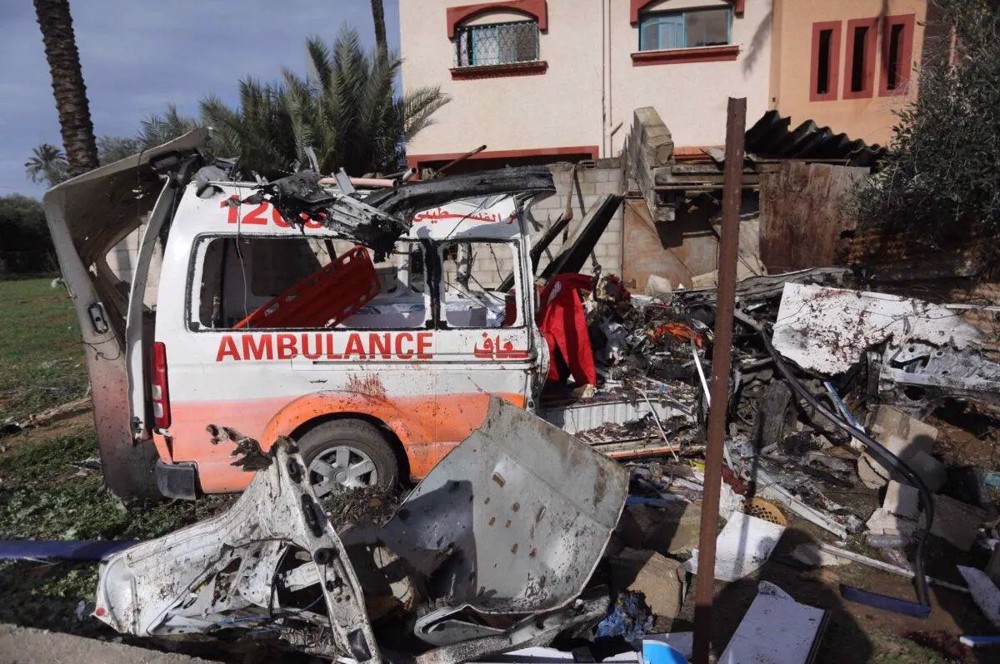
December 9, which marks the 430th day of the ongoing Israeli genocidal war against Palestinians in the Gaza Strip, is commemorated as the UN Genocide Prevention Day.
The day marks the anniversary of the adoption of the Convention on the Prevention and Punishment of the Crime of Genocide—a vital global commitment established at the founding of the United Nations, just before the Universal Declaration of Human Rights.
Adopted on September 29, 2015, it is also designated as the International Day of Commemoration and Dignity of the Victims of the Crime of Genocide and of the Prevention of this Crime.
Each year, the Office of the Special Adviser on the Prevention of Genocide hosts a high-level event to observe this International Day, honoring the victims of genocide worldwide.
UN Secretary-General António Guterres in his remarks on Monday said preventing genocide requires the involvement of all sectors of society, uring collective action to uphold the principles of equality and human dignity and to address the divisions and polarization prevalent in today’s world.
On Saturday, two days before the Genocide Prevention Day, the top UN official called the ongoing genocide in Gaza, which has claimed 44,758 lives so far, apart from thousands of others still trapped under the rubble, a "nightmare" that must be stopped.
"The catastrophe in Gaza is nothing short of a complete breakdown of our common humanity. The nightmare must stop. We cannot continue to look away," he wrote on X, formerly Twitter.
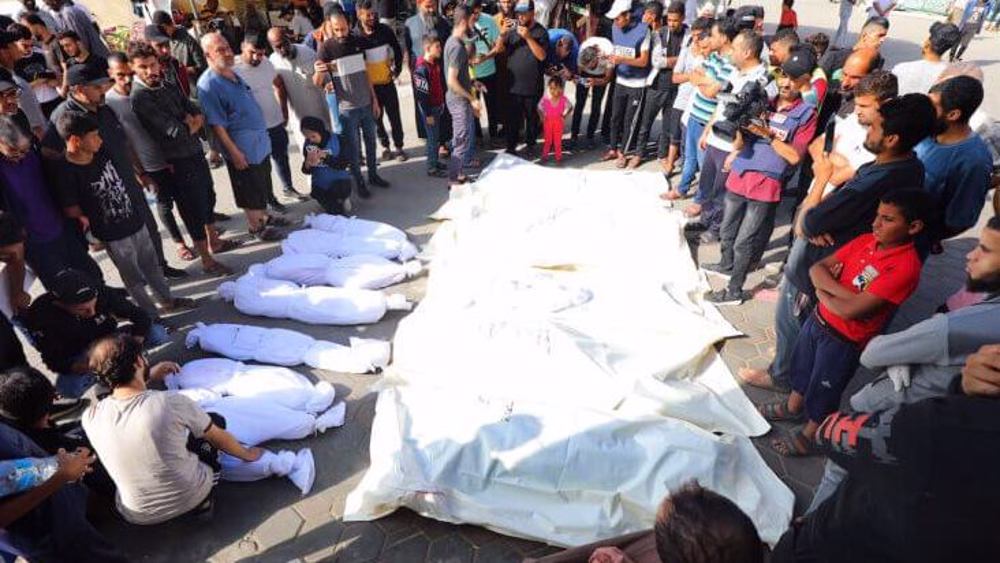
The genocide in Gaza has been widely described as one of the worst in modern history, with thousands of massacres committed by Tel Aviv in the besieged Gaza Strip since last October.
One of these was at the Al-Ahli Arab Hospital, where nearly 500 civilians were killed in a single day.
Nearly 4,000 massacres have been committed by the Israeli regime in the past 430 days in Gaza, with 70 percent of total victims women and children, according to Gaza's health ministry.
The ministry has urged the international community and rights organizations to intervene immediately to "stop the brutal Israeli attacks on the healthcare system, its staff, patients, and the injured."
In a statement, the ministry said Kamal Adwan Hospital in northern Gaza, the only hospital currently operating in the north, is facing daily attacks. It also reported that only 17 out of 36 hospitals in Gaza are partially operational, amid a severe shortage of medical supplies, medicines, and fuel.
Apart from hospitals, the Israeli forces have also targeted schools sheltering displaced persons.
A September attack on Zeitoun School in eastern Gaza City resulted in 22 deaths, including 13 children, six women, and a three-month-old baby, according to Gaza’s Ministry of Health.
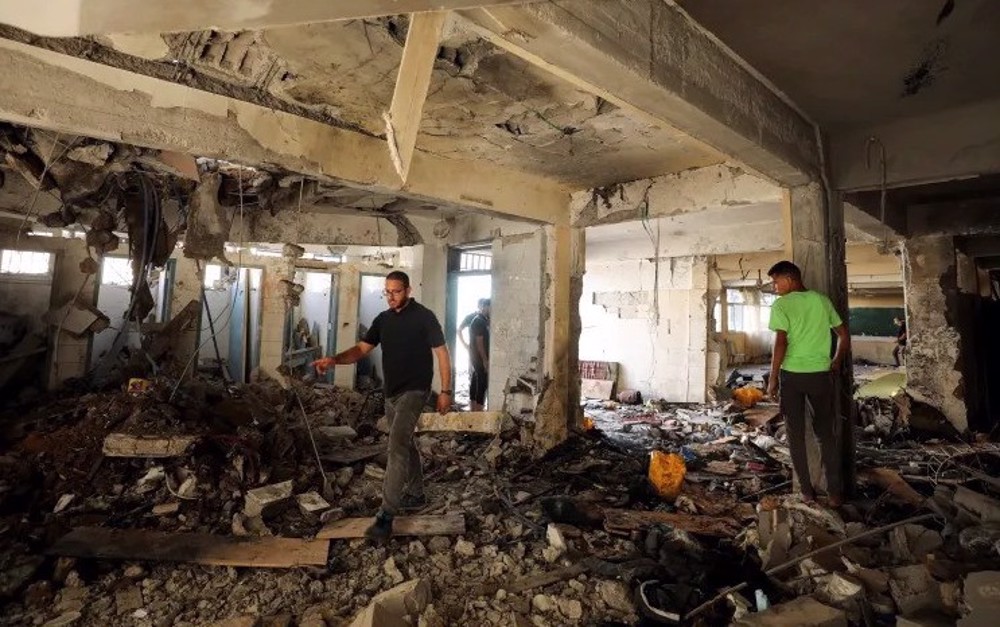
Nearly a month later, the Israeli regime bombed a United Nations-run school that was sheltering displaced Palestinians, killing at least nine people, according to officials and residents.
Taher al-Rantisi, a spokesperson for Gaza's Civil Defense, was quoted as saying that those seeking refuge in the school included "innocent children and the elderly."
The Israeli regime has also been deliberately targeting journalists in Gaza, activists say, with the death toll currently standing at 192, with many more missing and unaccounted for.
The Palestinian Center for Development and Media Freedoms (MADA) reported that 18 journalists were killed by Israeli forces in Gaza in November.
Additionally, the center documented 65 violations against journalists in the occupied West Bank and Gaza during the same period, including 22 incidents in the occupied West Bank and 43 in Gaza.
The Samidoun Palestinian Prisoner Solidarity Network, a network of activists advocating for Palestinian prisoners in their struggle for freedom, has also confirmed that 192 journalists have been killed in Israeli strikes in the Gaza Strip since the onset of the war on the besieged territory in October.
An Israeli drone chases and opens fire towards journalists in Al Nusseirat camp in the central Gaza.
— Palestine Highlights (@PalHighlight) November 28, 2024
Follow us on Telegram: https://t.co/fvRn3KuApw pic.twitter.com/CtP5NoBgVd
One of them is Khaled Abu Zir, a young sports journalist, who was killed by Israeli forces on November 8 in the Jabalia refugee camp in northern Gaza.
Following his killing, the Palestinian Journalists Protection Center (PJPC) described the ongoing war on Gaza as the "deadliest" for members of the press in the past eight decades.
The PJPC emphasized that "killing has become the primary weapon to silence journalists in Gaza."
Amid the genocidal war that is now in its 14th month, children and women in the besieged territory have borne the worst brunt, accounting for 70 percent of total fatalities, according to official data.
Many leading human rights advocates have since October last year called it a "genocide" in categorical terms and urged international institutions to take action against war criminals in Tel Aviv.
Francesca Albanese, the UN special rapporteur on Palestine, in a post on X recently said the events unfolding in the Gaza Strip should not be described as “war” but as “genocide.”
"There are many ways in which Israel is destroying the Palestinians in Gaza. Creating unsustainable and inhumane conditions of life is the most complex and cruel," Albanese wrote on X.
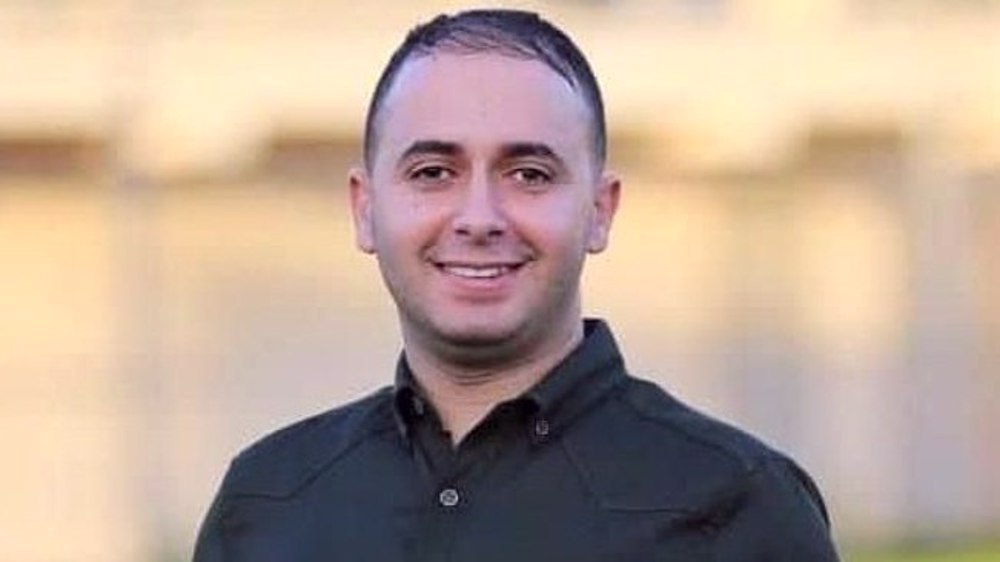
The Convention on the Prevention and Punishment of the Crime of Genocide (CPPCG), the first legal instrument that codifies genocide as a crime, was unanimously adopted by the UN General Assembly on December 9, 1948, and has been accepted by the International Criminal Court (ICC) as well.
Article 2 of the CPPCG defines “genocide” as killing members of a national, ethnic, racial or religious group and causing serious physical or mental harm to them, deliberate imposition of living conditions on a group calculated for its complete or partial physical destruction and forced transfer of children.
Article 3 defines crimes punishable under the Convention as genocide and attempt to commit genocide, direct and public incitement to commit genocide and complicity in genocide.
Last month, ICC issued arrest warrants against Israeli Prime Minister Benjamin Netanyahu and his former military affairs minister Yoav Gallant on charges of crimes including "intentionally and knowingly deprived the civilian population in Gaza of objects indispensable to their survival, including food, water, and medicine and medical supplies, as well as fuel and electricity.”
The arrest warrants issued have led to the “mobilization of shame” for the Israeli regime, Marjorie Cohn, professor emerita at Thomas Jefferson School of Law in San Diego, California, told the Press TV website in an interview, terming charges against them as “historic.”
“This is the first time the International Criminal Court has issued arrest warrants against an Israeli official for crimes against the Palestinian people. It is only the second time in its 22 years of existence that the ICC has issued an arrest warrant for someone who is not from the African continent,” she said.
VIDEO | Iranian family mourns father killed in foreign-backed violence
VIDEO | Pakistan observes Kashmir Solidarity Day
VIDEO | Cultural exhibition in India marks 47 years of Iran’s Islamic Revolution
VIDEO | Pakistan pushes indigenous defense industry as global buyers seek alternatives
VIDEO | Al-Shifa receives martyrs' bodies amid organ theft worries
VIDEO | Healthcare on the brink: Palestinian hospitals face shortage of medical supplies
Rights group accuses EU of complicity in Israeli genocide in Gaza
Yemen’s leader calls for million-strong rally on Friday


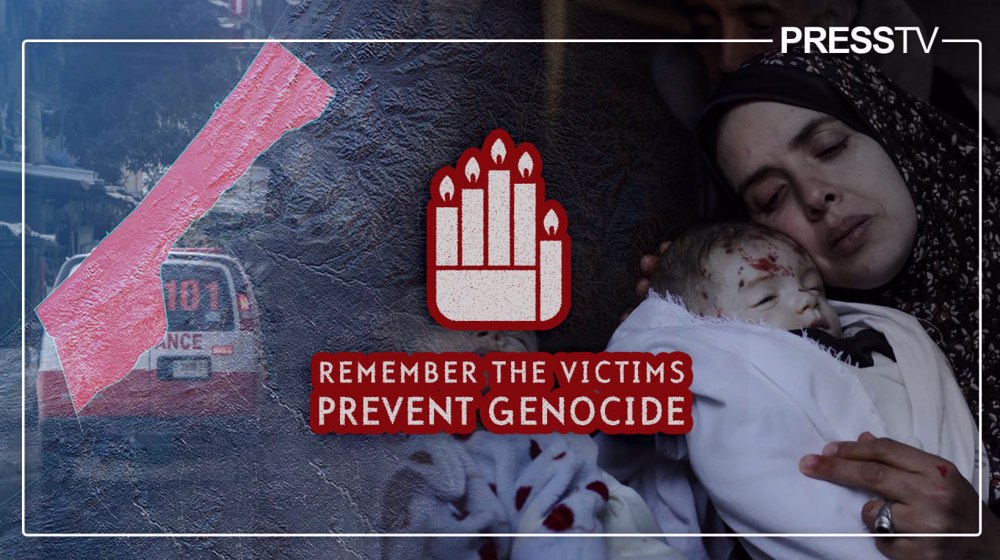
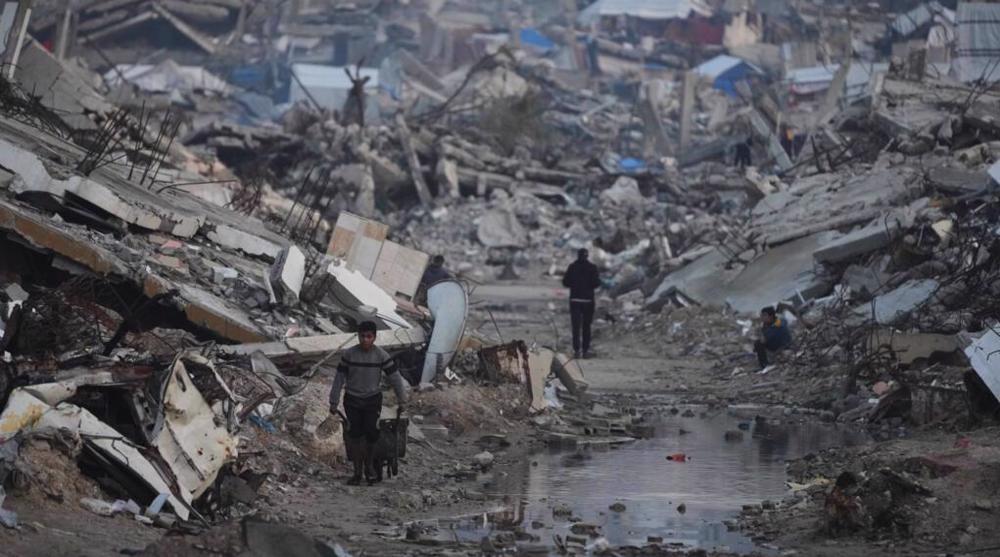





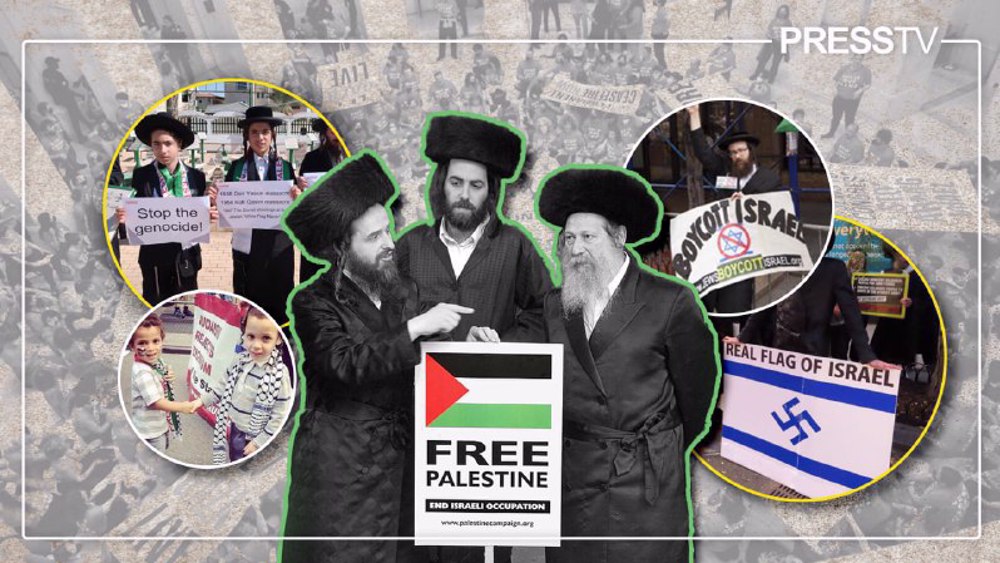
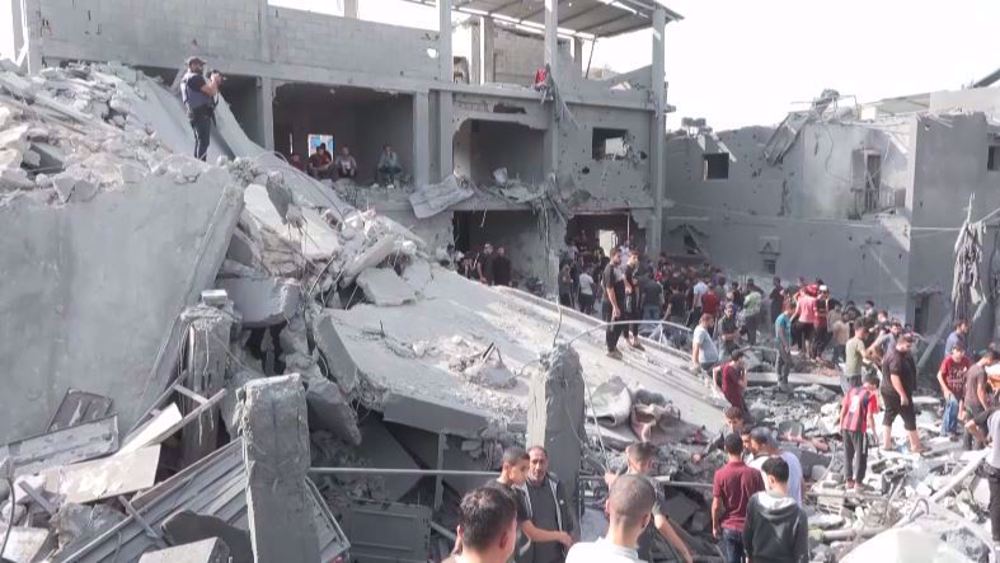

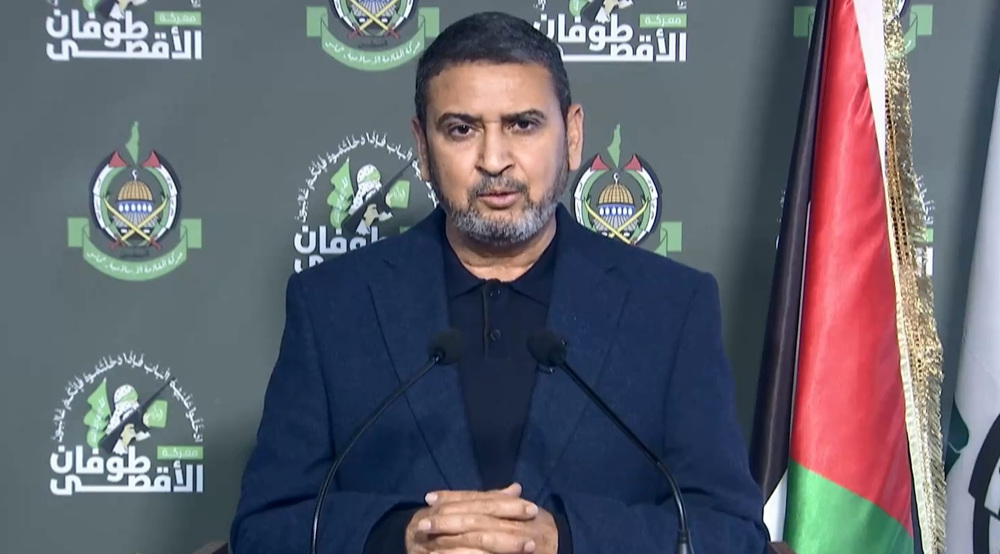
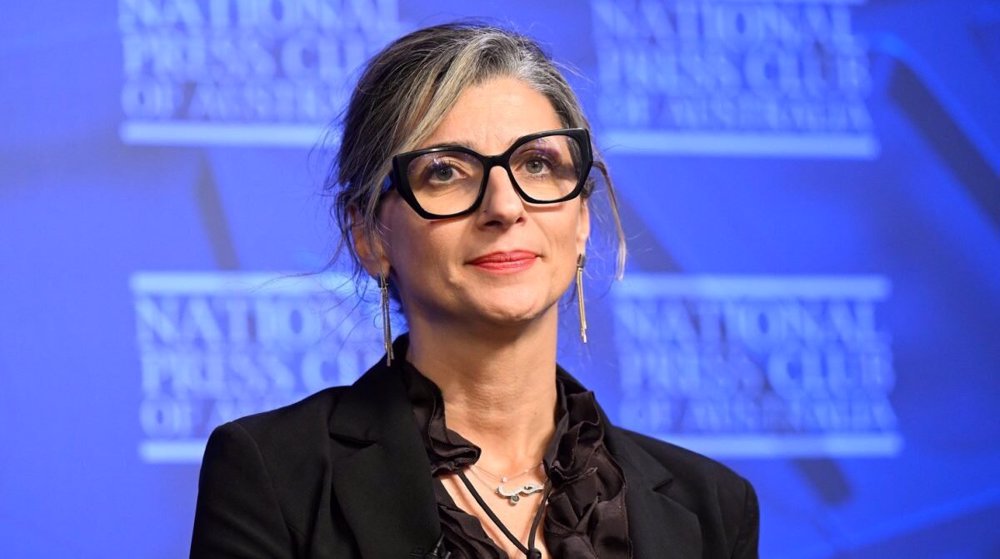

 This makes it easy to access the Press TV website
This makes it easy to access the Press TV website